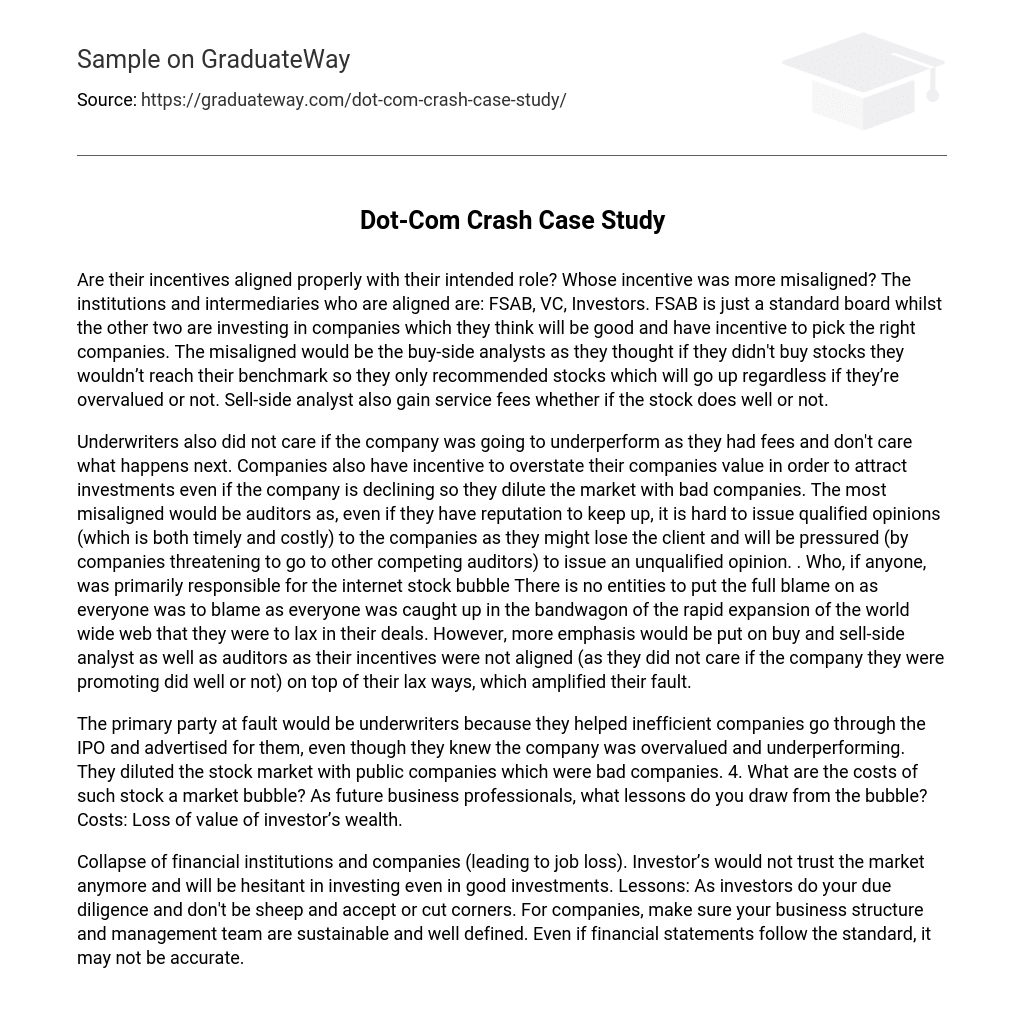Are their incentives aligned properly with their intended role? Whose incentive was more misaligned? The institutions and intermediaries who are aligned are: FSAB, VC, Investors. FSAB is just a standard board whilst the other two are investing in companies which they think will be good and have incentive to pick the right companies. The misaligned would be the buy-side analysts as they thought if they didn’t buy stocks they wouldn’t reach their benchmark so they only recommended stocks which will go up regardless if they’re overvalued or not. Sell-side analyst also gain service fees whether if the stock does well or not.
Underwriters also did not care if the company was going to underperform as they had fees and don’t care what happens next. Companies also have incentive to overstate their companies value in order to attract investments even if the company is declining so they dilute the market with bad companies. The most misaligned would be auditors as, even if they have reputation to keep up, it is hard to issue qualified opinions (which is both timely and costly) to the companies as they might lose the client and will be pressured (by companies threatening to go to other competing auditors) to issue an unqualified opinion. . Who, if anyone, was primarily responsible for the internet stock bubble There is no entities to put the full blame on as everyone was to blame as everyone was caught up in the bandwagon of the rapid expansion of the world wide web that they were to lax in their deals. However, more emphasis would be put on buy and sell-side analyst as well as auditors as their incentives were not aligned (as they did not care if the company they were promoting did well or not) on top of their lax ways, which amplified their fault.
The primary party at fault would be underwriters because they helped inefficient companies go through the IPO and advertised for them, even though they knew the company was overvalued and underperforming. They diluted the stock market with public companies which were bad companies. 4. What are the costs of such stock a market bubble? As future business professionals, what lessons do you draw from the bubble? Costs: Loss of value of investor’s wealth.
Collapse of financial institutions and companies (leading to job loss). Investor’s would not trust the market anymore and will be hesitant in investing even in good investments. Lessons: As investors do your due diligence and don’t be sheep and accept or cut corners. For companies, make sure your business structure and management team are sustainable and well defined. Even if financial statements follow the standard, it may not be accurate.





